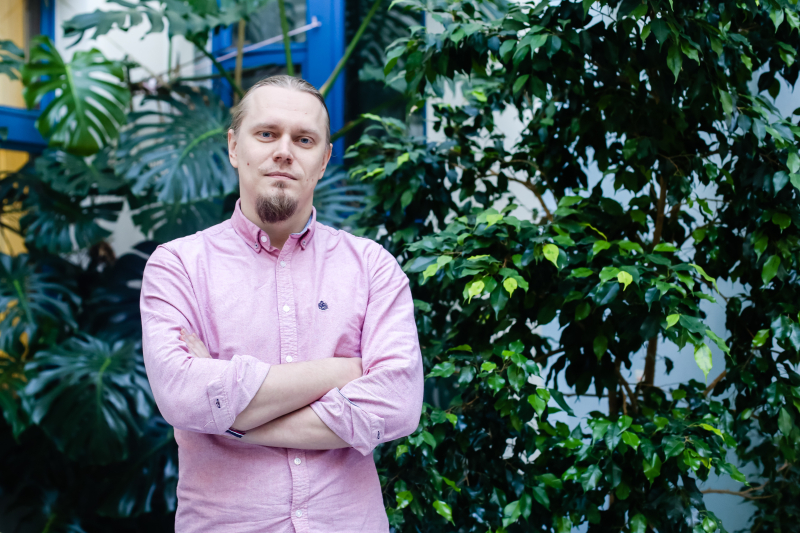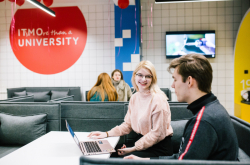Universities
Analysts from ITMO University and VK have analyzed the educational market in 2021 and 2022 to find out that despite a significant increase (by 54%) in the number of topical programs offered by edtech companies, the number of relevant Bachelor’s and Master’s programs also rose (by 25% and 27% accordingly). All in all, the experts counted 26 Bachelor’s programs (including 10 newly introduced ones) and 14 Master’s programs (including 6 new ones) implemented in different Russian universities, but mostly in Moscow.
Another trend, kickstarted in 2020, is a transition to online education and a boom of short-term online educational programs. This way, five out of the 26 Bachelor’s programs and two out of 14 Master’s programs, found at Russian universities, run fully online.
Over half of these programs (14 out of 26 – Bachelor’s, 7 out of 14 – Master’s) specialize in development and programming skills, while only 19% of all Bachelor’s and 43% of Master’s programs are focused on game design. The least share of these programs target more artistic specializations, with only five Bachelor’s and one Master’s program.
Interestingly, the analysts have also found an increasing demand for university education in gamedev, despite the growing number of available online courses on the topic. According to public records, over 1,300 positions in related programs are offered to Bachelor’s applicants in 2022, while Master’s students have 235 positions. At the same time, the competition for these positions is relatively high, with 11.37 applicants per position in Bachelor’s programs and 2.98 – in Master’s.
Head of ITMO’s Game Development Technologies Master’s program Andrey Karsakov confirms this trend.
“Starting from 2017, when the program launched, we’ve been seeing a growing interest in this field from Bachelor’s students. Over this time, we’ve multiplied the number of available tuition-free positions by seven to adapt to the demand – the competition still stays at the level of 3-5 applications per position,” he says.

Andrey Karsakov. Photo by ITMO.NEWS
EdTech
Nevertheless, adults aiming to change their career paths tend to prefer short-term courses (lasting around 10 months) or shorter intensive programs (around two months). Such courses and programs take up 74% of the market, with three thirds of these implemented exclusively online. However, in the last year, such courses became more flexible in terms of the learning format and are ready to provide their students with the information online, offline, or in the form of an intensive course.
According to the analysts, 73 new game development courses were introduced last year, bringing their total number to 135, while the number of continuous professional development (CPD) programs increased by 17% (bringing their number to 28).
The growing demand brought around the increase in prices by around 13%, making the average price of a CPD course 186,000 rubles (the median price being 45,000 rubles). The price doesn’t depend on the document issued at the end of the course (a diploma or a certificate).
Read also:
ITMO's First Game Development Graduates on Russian GameDev and Their Careers
ITMO Students Receive First Place at DevGAMM Awards
How ITMO’s Partnership With Sperasoft Moves the Game Industry Forward
What comes next
According to Andrey Karsakov, gamedev education in Russia started with paid short-term courses, which is why there are so many of them offered by different companies. Formal education in this field was introduced in the form of university programs only over the past five years. The fact that the growing number of higher education programs in gamedev is an important trend is confirmed by game developers, too.
“We are happy to see the number of educational programs increasing every year. This demonstrates that the industry is constantly expanding and consequently requiring more trained specialists. As industry representatives, we are doing our best to support educational initiatives in the field and bring the whole Russian gamedev sector forward,” says Vasilii Maguryan, CEO of VK Play.
Unreal Engine's student showcase 2022, where ITMO University received its first mention for the project Tread of Greed created by students of the Game Development Technologies program
How the study was conducted
Inspired by an earlier study conducted in 2021, this analysis was based on open source information and resulted in a full list of gamedev educational programs.
Importantly, the current edition of the list doesn’t include potentially relevant programs (such as in 3D modelling, programming, etc.) that do not specifically focus on training game development specialists. However, as the study proceeds, these programs, too, might make it to the list.
“There is a great number of programs that we didn’t include in our analysis because their curricula do not render them specifically gamedev-oriented – and we paid more attention to the actual courses taught at a program, not its name. That’s why some of the seemingly relevant programs didn’t make the cut because of the more general-sounding courses in their curricula. However, we are planning to update the list and maybe even include new titles in it. You can always reach out (karsakov@itmo.ru) to us, if you want to see your program included,” concludes Andrey Karsakov.





